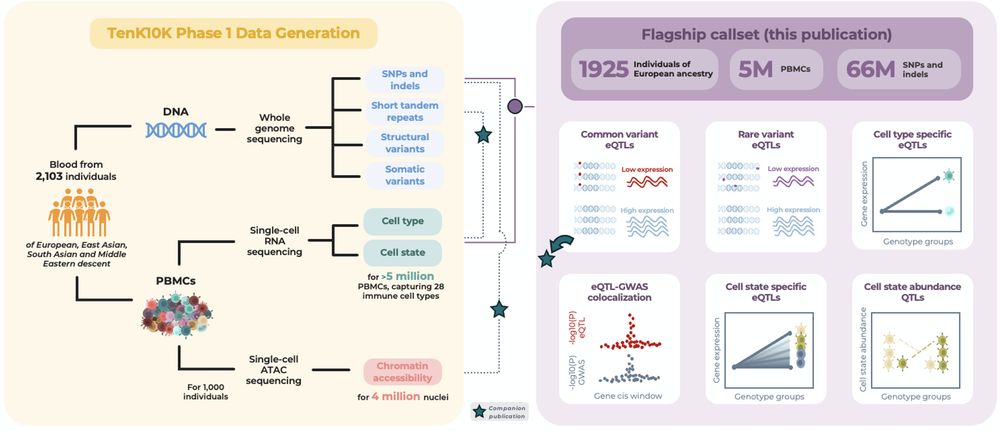👉 www.nature.com/articles/s41...
1,000 babies
WGS using existing cards
600+ conditions
13 day TAT
16 diagnoses (vs 1 in std NBS)
High clinical impact
High parental acceptability

👉 www.nature.com/articles/s41...
1,000 babies
WGS using existing cards
600+ conditions
13 day TAT
16 diagnoses (vs 1 in std NBS)
High clinical impact
High parental acceptability
www.medrxiv.org/content/10.1...

www.medrxiv.org/content/10.1...
We describe the clinical phenotype of a recessive NDD associated with biallelic variants in RNU4-2 🧬
See 🧵👇
tinyurl.com/3j9r56s8
@rociorius.bsky.social @yuyangchen.bsky.social @gregfindlay.bsky.social @dgmacarthur.bsky.social @cassimons.bsky.social @nickywhiffin.bsky.social

We describe the clinical phenotype of a recessive NDD associated with biallelic variants in RNU4-2 🧬
See 🧵👇
tinyurl.com/3j9r56s8
La historia completa la cuenta @alexblakes.bsky.social aqui 🧵👇
tinyurl.com/3j9r56s8
@rociorius.bsky.social @yuyangchen.bsky.social @gregfindlay.bsky.social @dgmacarthur.bsky.social @cassimons.bsky.social @nickywhiffin.bsky.social

tinyurl.com/3j9r56s8
La historia completa la cuenta @alexblakes.bsky.social aqui 🧵👇
github.com/populationge...
A superb collaboration with @dgmacarthur.bsky.social @cassimons.bsky.social @heidirehm.bsky.social @ksamocha.bsky.social and many more!

github.com/populationge...
A superb collaboration with @dgmacarthur.bsky.social @cassimons.bsky.social @heidirehm.bsky.social @ksamocha.bsky.social and many more!

www.medrxiv.org/content/10.1...
A super fun collaboration with incredible duo @gregfindlay.bsky.social @joachimdejonghe.bsky.social from @crick.ac.uk
🧬🖥️🩺
🧵1/12

www.medrxiv.org/content/10.1...
A super fun collaboration with incredible duo @gregfindlay.bsky.social @joachimdejonghe.bsky.social from @crick.ac.uk
🧬🖥️🩺
🧵1/12
🧵👇 (1/n)


